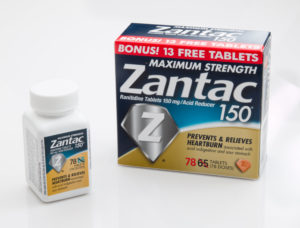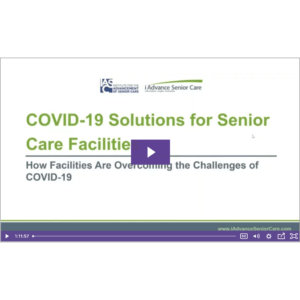Use Caution with Heartburn Medications
// By Lauren Sandford //
 As a leader in the senior care space, prescribing or distributing medications may be a part of your daily routine. As much as daily medications are designed to benefit the overall health of the seniors you may care for, it’s critical to stay on top of the latest pharmaceutical news, including news involving chemical contaminations, product recalls, and modified warning labels. One of the most recent widespread headlines deals with the recall of one common heartburn medication, Zantac.
As a leader in the senior care space, prescribing or distributing medications may be a part of your daily routine. As much as daily medications are designed to benefit the overall health of the seniors you may care for, it’s critical to stay on top of the latest pharmaceutical news, including news involving chemical contaminations, product recalls, and modified warning labels. One of the most recent widespread headlines deals with the recall of one common heartburn medication, Zantac.
What prompted the Zantac recalls?
Brand-name Zantac and other generic ranitidine-based medications help treat and prevent heartburn, stomach ulcers, and gastroesophageal reflux disease (GERD). The drug is available over the counter but can also be prescribed by a doctor in more serious cases.
In June 2019, the medical company Valisure found that several ranitidine-based products tested for high levels of N-nitrosodimethylamine (NDMA), which is classified as a potential human carcinogen. Valisure then alerted the U.S. Food and Drug Administration (FDA) of its findings, and the FDA further addressed the potential NDMA contamination in a public statement.
At this time, users who were regularly taking Zantac and other ranitidine medications might have noticed that numerous drug distributors, including Sandoz Inc. and Apotex Corp., voluntarily recalled several lots of ranitidine tablets as a precaution. By the end of September 2019, well-known drug stores like CVS and Walgreens stopped selling Zantac and store-brand ranitidine products due to concerns that the NDMA could affect users’ health.
NDMA could be hazardous
Whether or not NDMA exposure can negatively affect human health is still under investigation. Even with this lack of evidence, there is still the potential that NDMA could cause health issues in humans based on various animal studies.
Past experiments have shown strong correlations between NDMA exposure, particularly through contaminated food and water, and tumors of the liver, respiratory tract, kidney, and blood vessels. Other studies have revealed that NDMA exposure can elevate the risk of developing certain forms of cancer. However, more research needs to be done before concrete claims can be made regarding this connection.
Zantac is not the first drug found to have NDMA impurities. Within the last year, the well-known blood pressure medication valsartan was also subjected to recalls. Other angiotensin II receptor blockers (ARBs), including losartan and irbesartan, were also recalled after NDMA and similar contaminants were found during routine laboratory testing. To stay updated on all pharmaceutical recalls and related news, be sure to read through the FDA’s website.
Stay vigilant with all medications
Valisure’s discovery of the contaminated ranitidine tablets reinforces the notion that senior care providers should take great care when distributing or taking any medications. Though there is not a confirmed scientific link between NDMA exposure and human health conditions, such as cancer, many consumers have already come forward with similar claims in the wake of the ranitidine recalls.
In the meantime, health professionals advise that ranitidine users do not stop taking their medications. However, if users do choose to switch, they should speak with a primary doctor about alternative treatment options and medications.
Lauren Sandford is a staff writer for ConsumerSafety.org, an organization that empowers consumers to recover financial losses caused by unsafe products and conditions.
I Advance Senior Care is the industry-leading source for practical, in-depth, business-building, and resident care information for owners, executives, administrators, and directors of nursing at assisted living communities, skilled nursing facilities, post-acute facilities, and continuing care retirement communities. The I Advance Senior Care editorial team and industry experts provide market analysis, strategic direction, policy commentary, clinical best-practices, business management, and technology breakthroughs.
I Advance Senior Care is part of the Institute for the Advancement of Senior Care and published by Plain-English Health Care.
Related Articles
Topics: Clinical , Disaster Preparedness , Executive Leadership , Featured Articles , Regulatory Compliance , Resident Care , Risk Management










